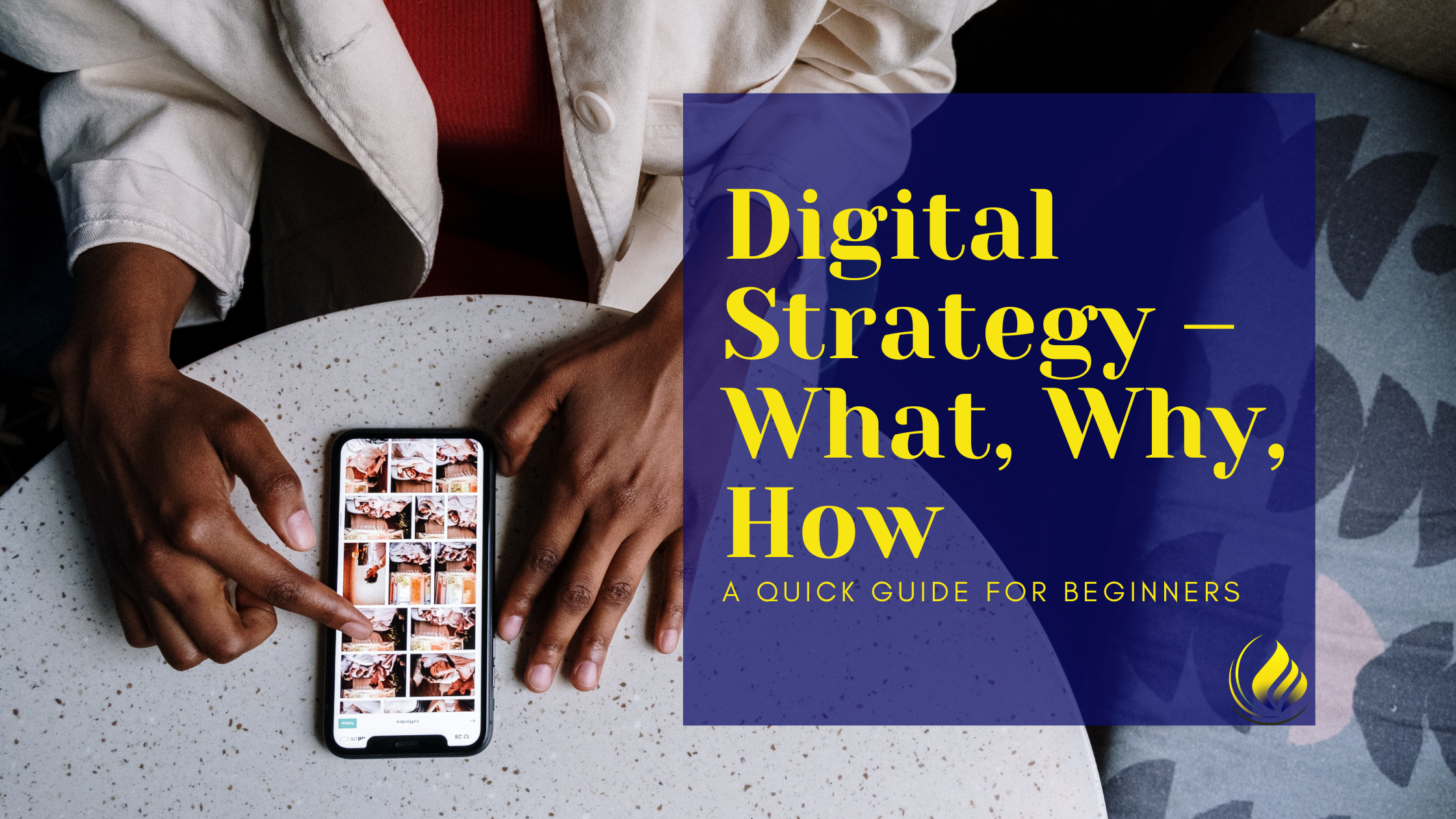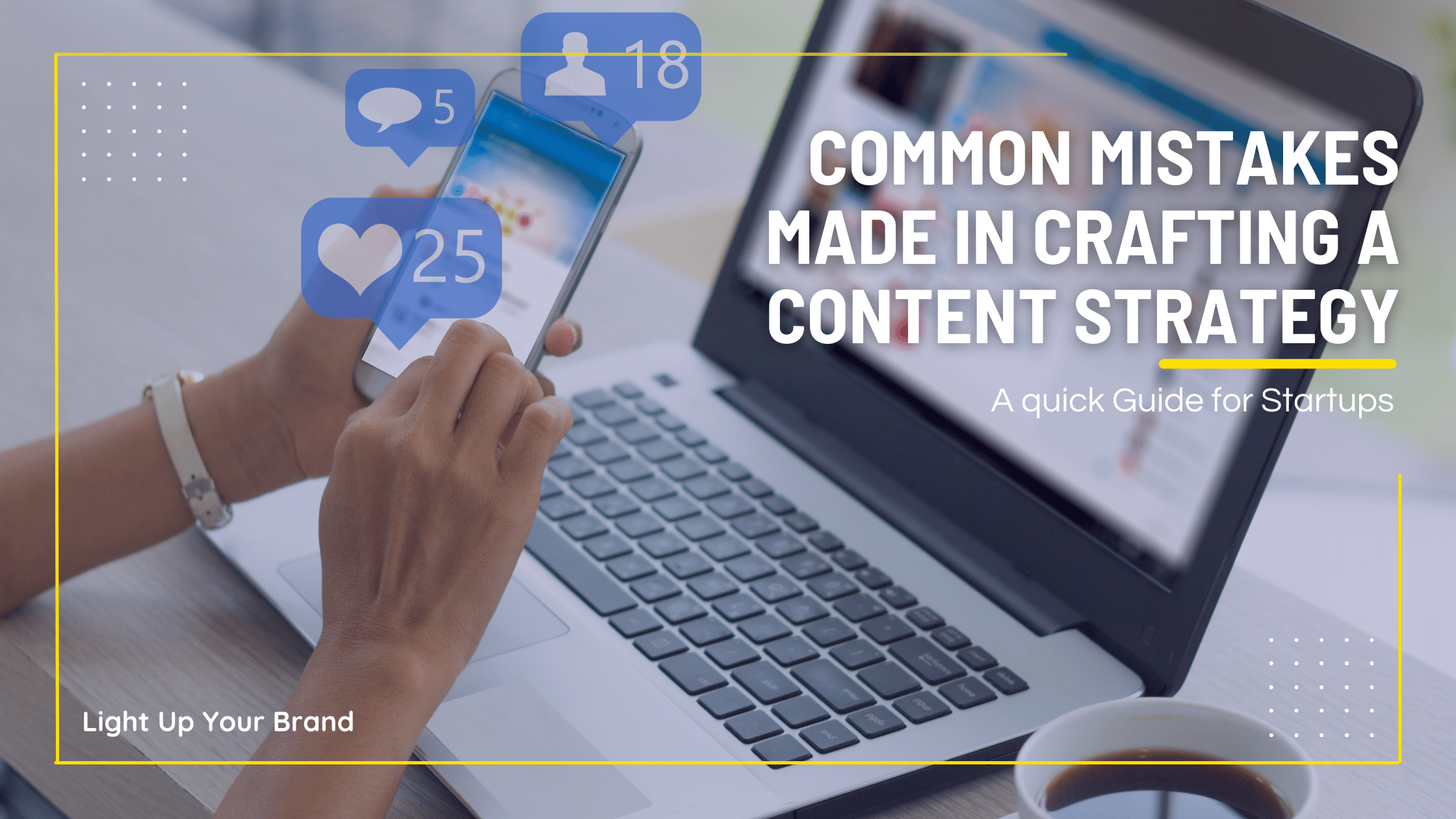In today’s world, promoting business online is crucial owing to the increased internet usage, businesses must ensure increased web presence if they wish to drive sales up and improve customer interaction. Digital marketing is simply any form of marketing efforts carried out online e.g. pay-per-click advertising, social media marketing, and email marketing, etc.
For a digital marketing campaign to be successful marketers must develop a strategy that helps determine how a digital marketing campaign should be conducted.
What is a digital marketing strategy?
Digital marketing strategies are actionable and flexible steps that helps a business achieve its goals by carefully selecting online marketing channels. The ability of a strategy to be implementable and to adopt to change are of crucial value. Basically, digital strategy is a plan for maximising the business benefits on the data assets and online initiatives.
An important concern when implementing a digital strategy is deciding what strategy to adopt to achieve your desired outcome. The strategies to adopt in a digital marketing campaign depends on how predictable your business market is and the malleability of the market. depending on those two factors the following strategy model can be adopted;
Positioning strategy – If your business is looking to defend a long-term position in the market, fortress or position strategy is the best strategy to adopt. Position strategy involves increasing the activities and resources that are available in a specific area. A positioning strategy is useful in markets without much change.
Leveraging strategy – For business possessing some advantage or influence in a market, leveraging strategies are best suited to improve performance and fortify its position in the market. here, a business utilises its advantages and influences to improve by making smart moves through marketing campaigns and the different activities within it.
Opportunity strategy – In case your business does not possess influence in the market and the market is continuously changing, then the opportunity strategy is the best option. Opportunity strategy involves looking for the best available marketing opportunity and capitalising on it to maximise the desired outcome.
How to develop a digital marketing strategy?
The following are the steps of developing an actionable digital marketing strategy;
- Create buyer personas.
For any marketing plan to be successful, marketers must identify their targeted audience. For your business to run a successful digital marketing campaign, it must build a detailed buyer persona. A business can build its buyer personas or ideal customers through interviewing, surveying, and researching the business’s target audience.
A buyer persona should be built on real data to avoid misleading assumptions on the audience. Information to gather to help build the buyer persona depends on various factors such as whether the business is B2B or B2C and the cost of the business. Demographic information i.e. location, age, income, and job title and psychographic information i.e. goals, challenges, hobbies and interests, and priorities are essential in developing a detailed buyer persona.
- Goals identification
Marketing goals must be aligned with the overall business goal. For instance, in the business financial year’s goal is to increase online business revenue by 30% then the objective of the marketers is to generate 75% more leads on their websites than what was available to help achieve these goals.
Every business objective should be followed by a corresponding marketing goal that helps determine what should be done. The effectiveness of your digital marketing depends on your digital strategy and your business goals determine the digital strategies to implement.
- Evaluating the available digital channels and assets
Businesses have to utilise the available digital marketing channels and assets in their digital strategy. To help categorise the digital channels or asset business is using, owned, earned and paid media frameworks are very helpful.
Owned media: this refers to all digital assets owned by your brand or company and whose control is under the business, they may include your website, blog content, social media profiles, and imagery.
Earned Media: this refers to exposure gained through the word of mouth. Which maybe guest posts you have distributed on websites, PR work you are doing, or customer experience that you have delivered and the recognition you’ve received. A business can earn media by getting press mentions, getting positive reviews, and content shared by other people.
Paid media: this is simply any media that you spend money on to catch the attention of your targeted audience. Paid media include google ads, native advertising and paid social media posts, etc.
- Owned media audit and plan
Owned media plays a huge role in determining the success of an online marketing campaign. Information broadcasted by the brand about the business helps shape the reputation. Content such as product descriptions, ebooks, infographics, blog posts, and social media posts make up the owned media.
Such information in the contented shared by a business helps convert web visitors to leads and customers and helps improve brand awareness. Regardless of the business goals owned content is important in any digital marketing strategy.
A marketing team should audit the effectiveness of different owned media performance in generating leads to help determine which type of content to continue producing and hence inform the plan to be implemented future online marketing campaigns.
- Earned media campaigns audit and plan
This involves evaluating the earned media campaign conducted previously against the current business goals. This helps determine the area where marketing time and resources should be utilised. Google Analytics is an important tool in performing these audits as it helps determine where your business traffic and leads are generated from. To perform an audit different earned media sources should be ranked depending on their effectiveness. For example, if you identify that newsletter and LinkedIn drove the most traffic, then you can plan to increase your resources on both.
- Paid media audit and plan
This step involves evaluating all paid media and auditing their performance. Paid media is easy to evaluate since information is available from the services to provide especially for google, Facebook, twitter. If you’ve spent money on a specific paid media without the desired returns, audits help make the decision on a better media platform.
- Integration
After developing buyer personas, identifying the goals, and evaluating the performance of the business marketing efforts, the information should be all brought together to form an organized strategy. This information will help choose the best digital marketing strategy to achieve the goals of the business and the series of actions that will be executed to result in the desired outcome.
Digital marketing strategies
Below is a list of most used digital strategies that your business can adopt to achieve your goals:
Paid social media advertising: Social media platforms such as Facebook, Snapchat, Twitter, Instagram, and Pinterest allow ads on their sites at a fee. Paid social media advertising helps in building brand awareness.
Social media marketing: This is a free marketing approach where you can post content that promotes your business online on social media platforms such as Facebook and Twitter. While organic social media is free, it takes much time and effort compared to paid social media advertising.
Search Engine Optimisation (SEO) – SEO helps in ranking pages or blog posts on individual sites organically without pay. While SEO is cheap as you don’t have to pay for every click, it takes time and effort to increase clicks.
Content Marketing: This is simply any online marketing efforts that use content assets. The content assets can be blog posts, infographics, eBooks, and videos. The aim of content marketing should be to increase brand awareness or boost clicks, leads, and sales.
Email marketing: While email marketing has existed longer than most digital strategies, it stills remains an effective marketing tool. Email marketing is especially effective in advertising special deals, highlighting content and promoting events.
Affiliate marketing: This is simply paying another person or business to promote your products or services at their websites properly because they have larger following and visitors.
Pay-Per-Click (PPC)Advertising: This is a digital marketing plan where you pay for every user who clicks your ads. Google AdWords and Facebook Ads are examples of pay-per-click advertising. PPC is very effective in increasing leads which may result in sales.



